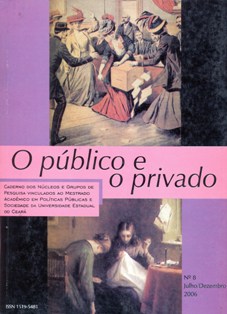Dilacerando os fios, tricotando às avessas, construindo a trama
mulher, tráfico de drogas e prisão
Palavras-chave:
Gênero, Pobreza, Tráfico de droga, PrisãoResumo
O tráfico de drogas constitui o segundo negócio mais rentável do mundo, com características de permanência e de constituição à vida paralela ao mercado formal de trabalho. Economicamente, existe nova alternativa de subsistência, com características e valores próprios. A adesão de mulheres, nessa “atividade”, é, nos últimos anos, progressiva, mudando as estatísticas de 32,6% em 1988, para 56,1% em 2000. No Estado do Ceará, em 1997, havia, só em Fortaleza, 1.452 homens presos e 105 mulheres, das quais 55 condenadas por tráfico de drogas, representando 52,4%. Entre outubro de 2003 a agosto de 2004, período da nossa pesquisa, constatase que, de 217 reclusas, 134 estavam presas por tráfico de drogas, alterando a estatística para 61,8%. Essa realidade instiga a pesquisadora a investigar e analisar as inter-relações do tráfico de drogas com a crescente inserção de mulheres nessa prática tida como ilícita.O recorte espacial desta investigação é a penitenciária feminina do Estado do Ceará, Brasil, Instituto Penal Feminino Desembargadora Auri Moura Costa (IPFDAMC). O trabalho ora apresentado é um breve relato da nossa visita de campo, nosso encontro e perplexidade diante da aridez do cárcere, levantamentos de dados, entrevistas preparatórias para definir o critério de inclusão dos sujeitos da pesquisa, a metodologia aplicada, referencial teórico, enfim é um pouco do caminho que percorremos para compreensão do nosso objeto de estudo











